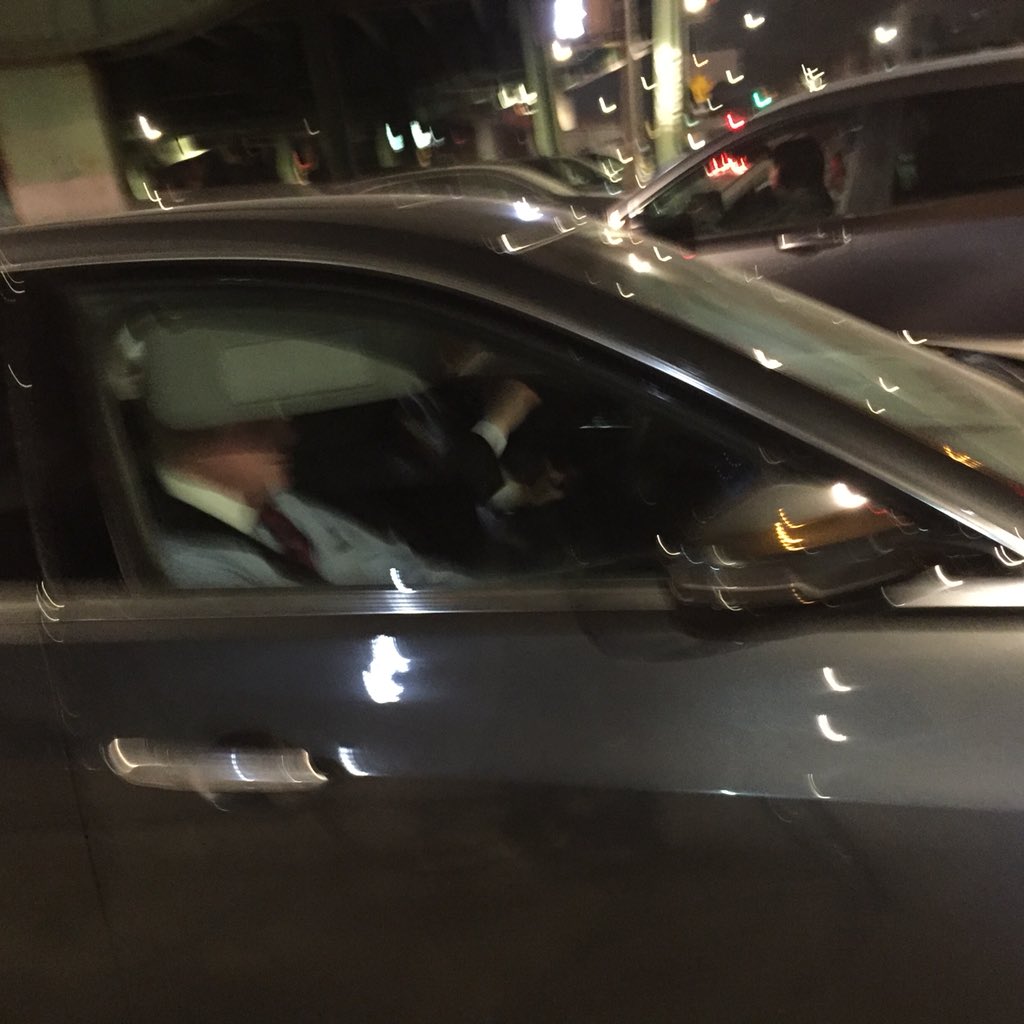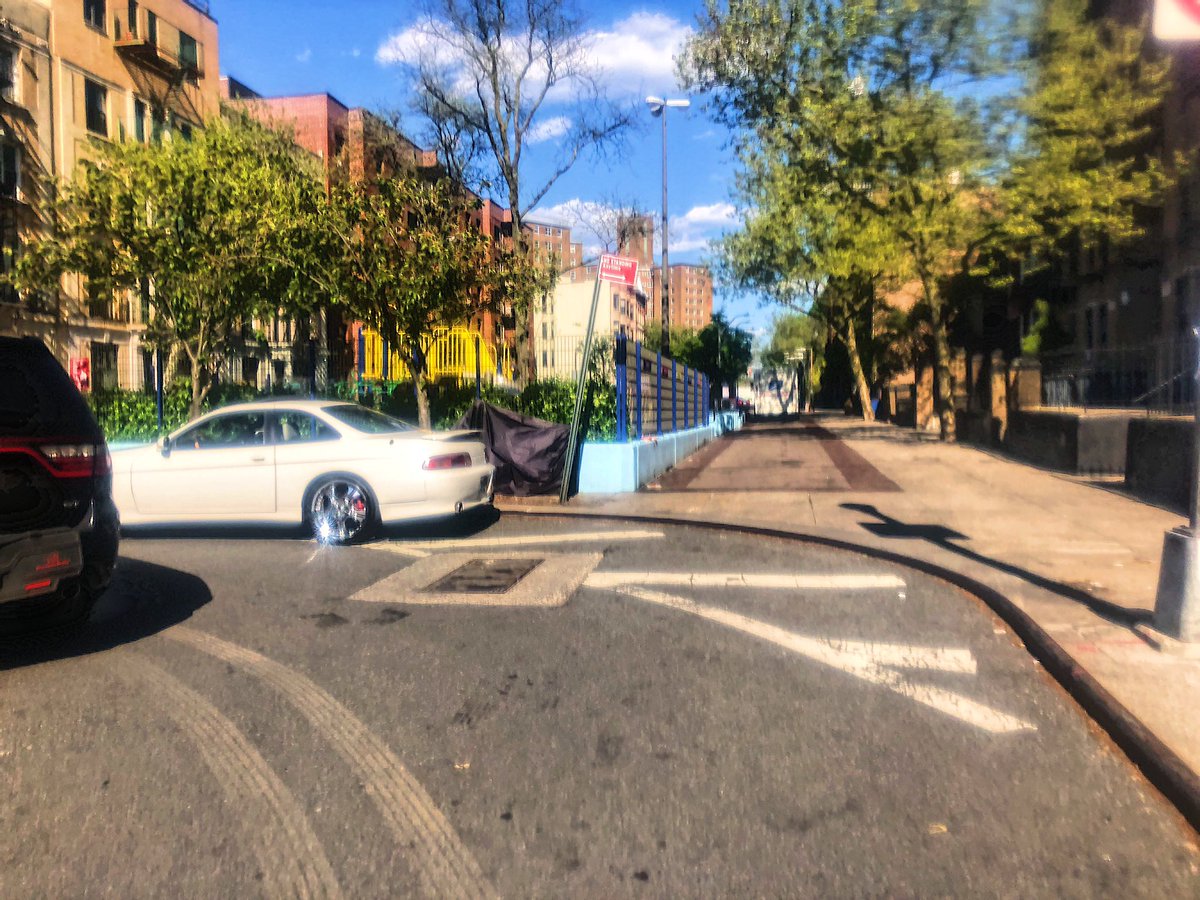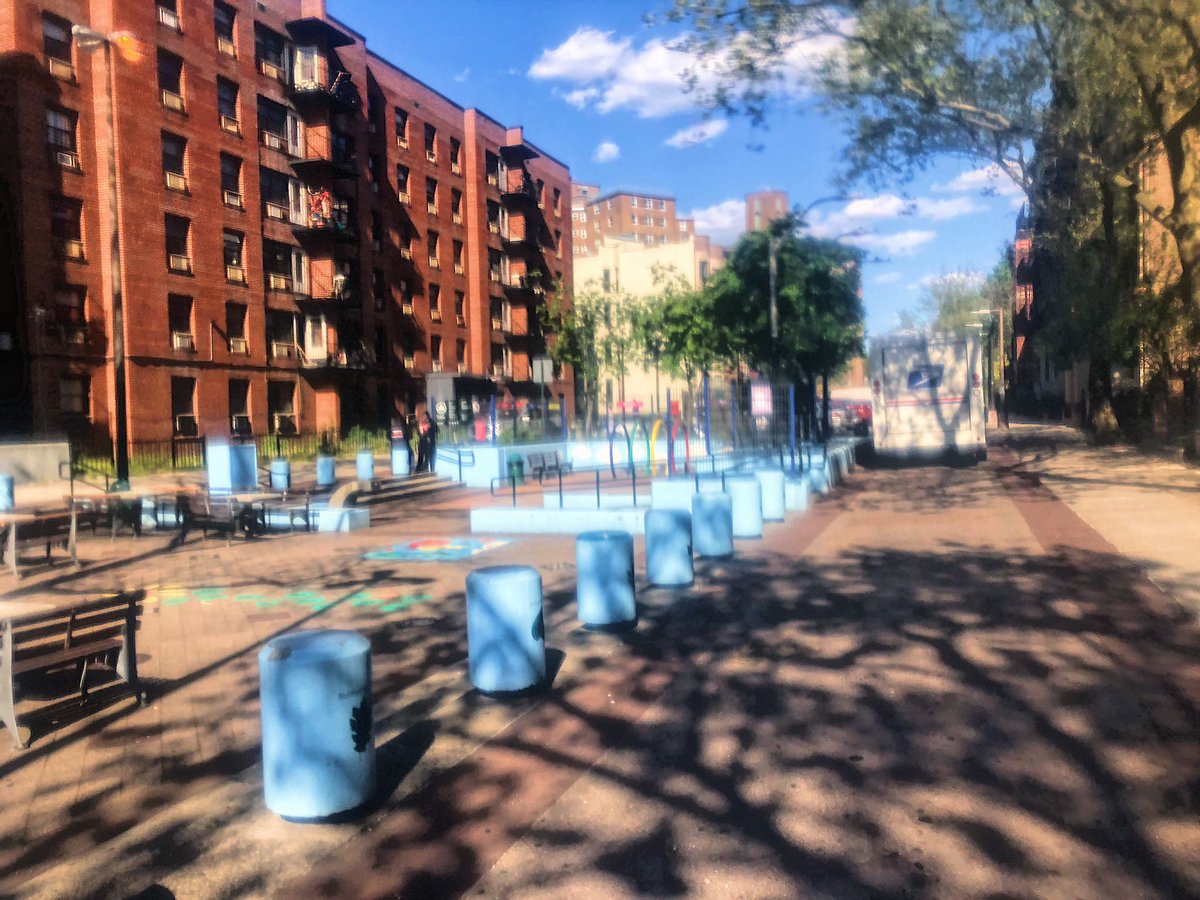I was biking to a community mtg. tonight when I saw multiple vehicles driving in the 3rd Ave. bike lane.
A man stuck his head out the window waving a non-NYPD placard, telling me to pull over, claiming to be a police officer.
When challenged, he hid the placard & his face.
1/
A man stuck his head out the window waving a non-NYPD placard, telling me to pull over, claiming to be a police officer.
When challenged, he hid the placard & his face.
1/
I noticed he had a driver wearing a suit.
2/
2/

• • •
Missing some Tweet in this thread? You can try to
force a refresh











